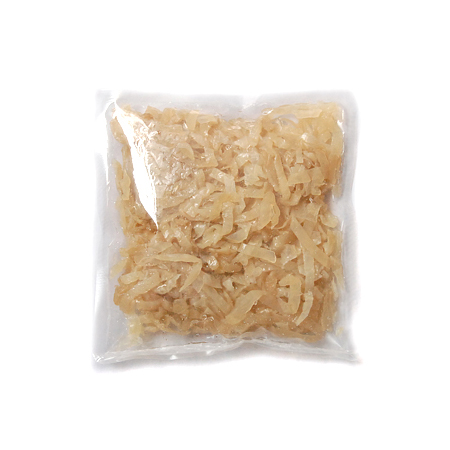

Jellyfish is rich in nutrients. According to measurements, every 100 grams of jellyfish contains 12.3 grams of protein, 4 grams of carbohydrates, 182 milligrams of calcium, 132 micrograms of iodine, various vitamins. The natural jellyfish is a kind of Rhizostomatidae organism in the sea, which is captured processed by salt alum pickling
The appearance is milky white, flesh yellow, light yellow, with a moist shiny surface that is easily broken when pulled. It has toughness when biting, its shape is naturally circular without any broken edges. Artificial jellyfish have a slightly yellow milky white color, the jellyfish silk looks larger whiter. The meat is crispy tastes crispy loud.
Some, although crispy, lack toughness are prone to breakage when pulled, with a rough taste like chewy powder a slightly astringent taste, are considered inferior to artificial jellyfish. If the jellyfish shreds are purple black, have a foul odor, have pus like liquid, it indicates that they have deteriorated. A more simple way to distinguish is to look at the price. The cost of artificial jellyfish is much lower than that of natural jellyfish.
